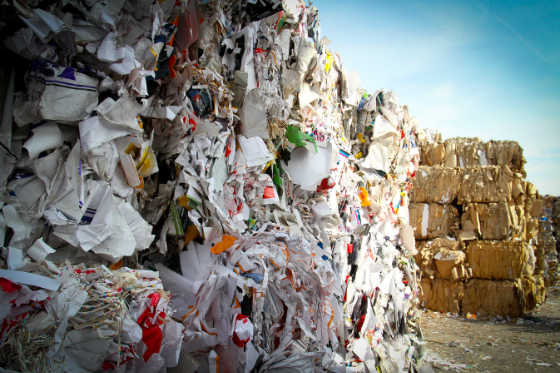In the 1960s, when the environmental movement first began, environmentalists and businessmen were mortal enemies. After all, the modern environmental movement coalesced when Rachel Carson’s book Silent Spring pointed a finger at the chemical industry. Today, sustainability is a common topic of discussion around conference rooms in nearly every industry. The plain fact–one that companies everywhere have begun to understand–is that sustainability boils down to reducing wasted energy and materials, which isn’t just good for the environment, but for business models and profit margins, too. It just took time for the navy suit and tie-dyed crowds to realize that they could be on the same team.
However, while the situation has improved, there are still opportunities for sustainability that go unnoticed. The majority of the attention given to sustainability is in the realm of materials and labor sourcing, while little attention is paid to company operations that could net immediate results. Because the supply chain operates around the clock, implementing sustainable supply chain management practices can pay off every hour of every day, reducing not only a company’s impact on the planet, but also its Total Cost of Business (TCOB).

Why Should Businesses Care About Sustainability?
When employees are relying on you to make smart decisions that will support them and grow the company, you have to think practically. Often this means that sustainability isn’t a primary concern. But implementing sustainable practices can simply mean improving operational efficiencies to waste less energy and materials–a win-win for both your company and the environment. In fact, it’s amazing how well environmental and business goals line up. Here are just a few ways “green” practices can benefit your business:
- Saves money: Reducing carbon dioxide emissions, an important concern for environmentalists, can be most easily accomplished by reducing fuel consumption. Reduced fuel use is a saving that frees capital for investment in new products or operations. At the same time, sustainable practices such as reusing products or byproducts can actually create new income streams. Recovered materials can be reused, made into new goods, or sold to those that are interested in doing so.
- Gives your business meaning: Many consumers, and even retailers, are increasingly looking for more than a good product. They’re looking to support companies that have a goal beyond profit and expansion, such as doing good in the world. Taking a stand on the environment is one way of doing your part and standing out in a crowded industry.
- Future-proofs your business: While the current administration appears to be making some environmental standards for companies less strict, elsewhere, such as in the EU, large companies are required to consider the environmental consequences of their policies and produce a sustainability report each year. Companies that are looking to do business internationally or are concerned that similar regulations may eventually make their way to the U.S. would be wise to consider proactively implementing more sustainable processes.
Ultimately, environmental sustainability means using fewer resources, wasting less of the resources you do use, and looking for ways to reuse materials that have been expended, which ultimately improves your bottom line. Taking advantage of these hidden savings and even profiting from them is simply a matter of identifying inefficiencies and finding ways to fix them.
Opportunities for Sustainable Supply Chain Management
There are many ways to go about increasing sustainability, but in the business world, there’s one change that can be made in the supply chain that will reduce materials, time, and energy waste. That’s changing the pallet your business uses.
Maintaining the wood pallet supply consumes 43% of hardwood and 15% of softwood produced in the U.S.
In the U.S. alone, there are approximately 2 billion pallets in circulation, and the vast majority of these are made out of wood. This is less than ideal for both businesses and the planet. The lifecycle of these pallets isn’t long, and a great deal of wood is consumed in their repair and maintenance, as well as in constructing more than 800 million new pallets yearly. Maintaining the wood pallet supply consumes 43% of hardwood and 15% of softwood produced in the U.S. For all that cut timber, the supply chain isn’t getting a very useful product, since even reusable wood pallets are prone to splintering, breaking, losing nails, and causing damage to product, employees, and warehouse equipment. All of these issues also increase the likelihood of food contamination.

Any time a damaged pallet renders product unsafe for use, the energy that it took to process and transport that product is effectively wasted. In monetary terms, it is an investment that cannot be recouped. Replacing the wood pallet with a shipping platform that doesn’t have these shortcomings prevents wasted money and wasted energy.
Plastic Pallets Help Create a Sustainable Supply Chain
A more sustainable shipping solution is already available to take the place of flimsy, hard-to-clean wood pallets. Plastic pallets are much more durable, capable of making 80-100 trips through the supply chain, compared to a wood pallet’s 22 trips. This increased durability alone helps to create a more sustainable supply chain by reducing the chances of equipment and product damage and reducing the amount of energy that is wasted moving products that can’t be sold. It also does away with the need to constantly ship damaged pallets to a depot for repairs, again saving fuel.
Regardless of environmental concerns, an efficient, sustainable supply chain is a competitive advantage for a company now and into the future.
These are not the only sustainable supply chain advantages conferred by plastic pallets. A plastic pallet is much lighter than a reusable wood pallet, at under 50 pounds compared to 70-80 pounds for a typical pooled wood pallet, and since plastic isn’t absorbent, this weight never changes. As a result, supply chain operations managers no longer need to build in a buffer for varying pallet weights and can maximize the amount of a load on trailers that weigh out, optimizing their transportation costs. Fewer transportation legs, and–for loads that cube out–lighter trailers also means reduced fuel consumption, resulting in lower carbon dioxide emissions and less money spent on transport.
Sustainable supply chain management is an important environmental consideration, but it is an economic one as well. Regardless of environmental concerns, an efficient, sustainable supply chain is a competitive advantage for a company now and into the future. Choosing plastic pallets is good for business and for the planet, and that makes choosing a modern, durable plastic shipping platform a no-brainer.
The iGPS pallet rental program provides a lightweight, durable, and tracking-enabled GMA spec plastic pallet. To optimize and future-proof your supply chain, give our team a call at 1-800-884-0225, email a specialist at switch@igps.net, or visit our contact page.
Image 1: Unsplash User: Jon Flobrant
Image 3: Unsplash User: Max Lakutin



